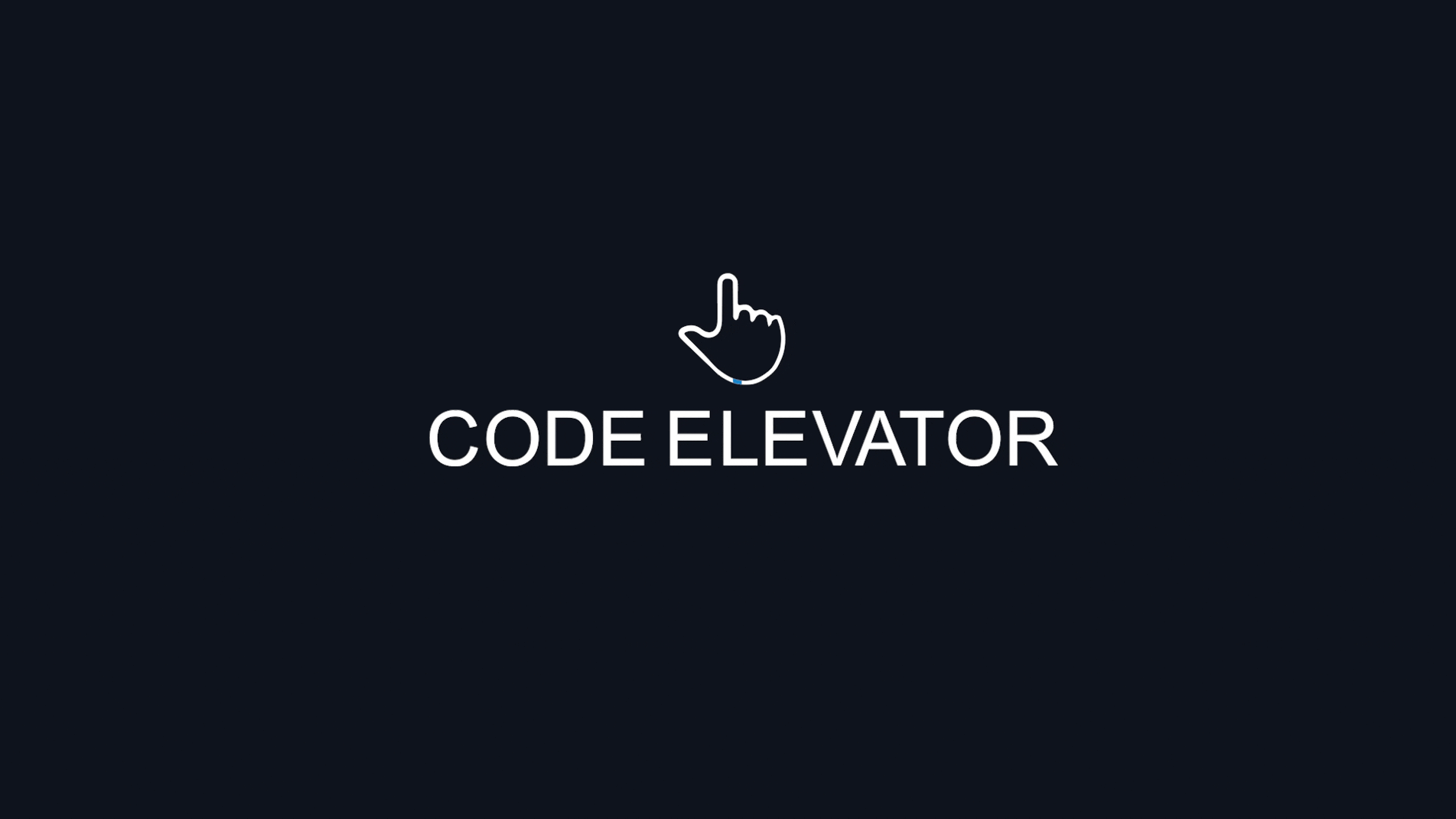About UsDigitally Yours – The One-Stop Shop for Precise Tech Solutions for your Business
CodeElavator offers turnkey development solutions that are future-ready and boundless. We create disruptive products all the while handling the entire lifecycle of the product development. Our Solutions have helped businesses achieve unprecedented success.
We do not just Innovate. We discover, We answer every question with technology and digital maturity. This has got us the badge of the Top Web and Mobile App Development Company. Today CodeElavator stands on the shoulders of a great team of developers and designers.
As an overarching web development company, CodeElavator is ever-ready to take on any type of development work. We stay abreast with the latest in the field of development. Be it Xamarin, Augmented Reality, Appcelerator, or iBeacon App Development, we know it all.



Let’s build the app on your idea!
Hire us to get your blockchain application developed in weeks.
Blockchain
Blockchain applications like smart contracts, cryptocurrency token, DeFi application or even a whole new blockchain network.

Smart Contract
Launch your own smart contracts on blockchain.

Blockchain Network
Custom blockchain network like Ethereum & Solana.

Crypto Token
Crypto token on existing blockchain for payments

DeFi App
Custom Decentralized finance (DeFi) application.
Listing
Need listing service? We have got you covered in expanding your brand to masses.

Exchange Listing
List your cryptocurrency on leading exchanges.

Token Listing
Token listing on tracking platforms like CoinGecko.

Platform Listing
List your crypto platform on web directories.

Website Listing
List your website on standard platforms for backlinks.
NFT
Explore our standard services ranging from simple NFT launch to building a marketplace for NFT trading.

NFT Collection
Launch your own NFT collection with our resources.

NFT Marketplace
Developing your customized NFT marketplace.

NFT Launch
Designing & launching single or multiple NFTs.

Buying or Selling NFTs
Consult us before buying or selling NFTs.
Content
We provide content for all-kind of blockchain projects including whitepapers, technical papers, developer docs, project plan PDF & more.

Whitepaper
Describing theoretical concepts of your project in detail.

Technical Documents
For describing guides & technical details of your projects.

Website Content
Website copies & content for your blockchain project website.

PDFs & Pitch-decks
PDF content to present your project in memorable format.
Design
Designing impressive & presentable brand assets for blockchain projects including logos, website themes, app modules, & more.

Logo
Eye-catching & remarkable logo for your blockchain project.

Website
Website design that describes everything about your project

PDFs
Designing PDF files to present your project plan to the public.
Social Media
Providing all kind of social media services including posting content, account management, influencer marketing & paid campaigns.

Account Management
Handling your social media account with everyday activities.

Designing & Posting
Creating posts and posting it across all your social accounts.

Influencer Marketing
Boosting social media presence using influencer outreach.

Followers & Members
Increasing followers & community counts with paid campaigns.
Blockchain Networks We Offer
Network-wise, here’s what we provide to our clients.

Public
We provide public blockchain networks, which form the basis of the enormous and rapidly expanding field of decentralised

Private
We provide private blockchain services, which are decentralised distributed ledgers that may be controlled by a

Hybrid
The characteristics of both public and private blockchains are combined in a hybrid blockchain. In a hybrid

Consortium
A consortium blockchain is made up of many different financial organisations, each of which has its own private
ENHANCE YOUR INDUSTRY WITH US
Web3 solutions for your industry

Healthcare & Medicine

Fintech & Banking

Supply Chain

EdTech & Elearning

Marketing & Sales

E-Commerce & Retail

Arts & Entertainment

Customer Service & HR

Legal & Compliance

Real estate
Our Services
CodeElevator offers various services to help you build blockchain applications.

Project Design
Getting started from scratch to represent your idea into a demo

Development
Developing a complete blockchain project from your idea.

Consulting
How to move forward with blockchain? Connect to our experts!

Research & Project Planning
We will guide you in achieving desirable results for your project.
Technologies we work with
We have worked on several leading blockchain networks including Ethereum, Solana, Polygon, BNB Chain, Tron, Arbitrum & many more.

Blockchain Solutions We Offer
From custom blockchain applications and smart contracts to decentralized exchanges and P2P platforms, we deliver comprehensive blockchain solutions designed to meet the unique demands of your business and industry.

Blockchain Development

Smart Contracts

Crypto Exchange

DeFi App

Crypto Wallet

Staking Platform

MLM Platform

Crypto Token

NFTs

Crypto Banking App
How do we work
We work with focusing on your desirable outcome

- 1. Project Idea Discussion
- 2. Conceptualization & Product Blue Print
- 3. Development, Testing & Amendments
- 4. Final Execution & Product Release
We meet customers in set place to discuss the details about needs and demands before proposing a plan.
Our experts come up with all kinds of ideas and initiatives for delivering the best solutions for IT services chosen.
After agreeing on the ideas and plans, we will conduct as scheduled and give comments on the results & adaptations.
Once the final plan is approved, everything will be conducted according to the agreed contract.
Why Choose CodeElevator?
CodeElevator is the leading software development company in developing Custom Software Mobile apps, Web apps, Magento E-commerce stores, AI/ML Development, product engineering, and Progressive web apps.We can efficiently develop tailor-made applications for our clients. This application can enhance customer enhancements and get more business insights. Businesses can utilize our software development services and allow our skilled developers to build user-friendly application interfaces that enrich customers' experience.
5+
Years Experience
50+
Talented Squad
100+
Project completed
50+
Clients Worldwide
10+
Industry Served
100%
Client Satisfaction
Get in Touch with Us!
At CodeElevator, we value your questions, feedback, and project inquiries. Whether you're looking to discuss a potential collaboration, need support for an ongoing project, or just want to know more about our services, we're here to help!



































